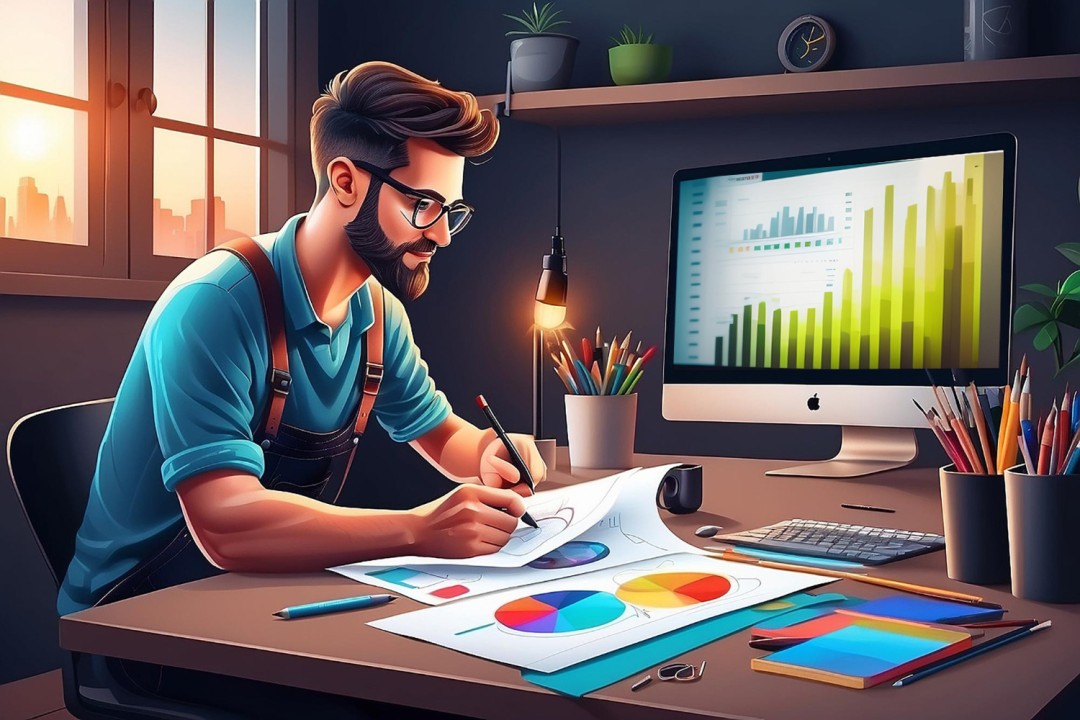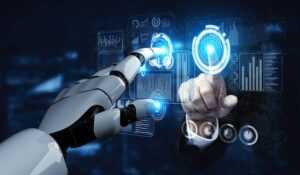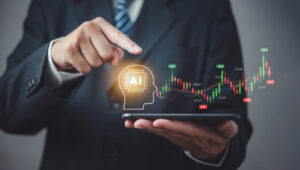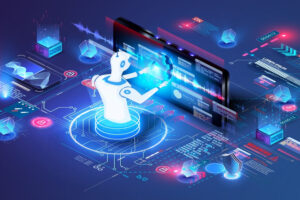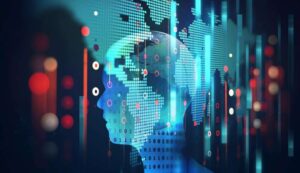In recent years, the integration of AI for creative agencies has transformed the way these agencies operate. Creative agencies, known for their innovative approach to marketing, design, and branding, are increasingly leveraging artificial intelligence to enhance creativity and efficiency. The rise of AI in creative sectors is not just a trend but a revolution that is reshaping how creative professionals work and think.
The primary keyword, AI for creative agencies, is important for understanding how technology is influencing the creative industry. By adopting AI tools, agencies can streamline processes, generate fresh ideas, and deliver more personalized experiences to clients. In this article, we will delve into the different ways AI is changing the landscape for creative agencies, empowering digital creators, and fostering innovation.

Understanding AI in the Creative Sector
AI technologies are designed to simulate human intelligence processes, including learning, reasoning, and self-correction. In the context of creative agencies, AI is used to analyze data, predict trends, and automate repetitive tasks. This allows creatives to focus on the core aspects of their work, such as ideation and design.
For instance, AI-driven tools can analyze vast amounts of data to uncover insights about consumer behavior and preferences. This data can then be used to create targeted marketing strategies and personalized content, enhancing the effectiveness of creative campaigns.
Moreover, AI is enabling creative agencies to experiment with new forms of creativity, such as generative design and AI-generated art. These technologies allow designers to explore a wide range of possibilities and create unique and innovative designs that were previously unimaginable.
The Impact of AI on Design and Art
AI has a profound impact on design and art, two of the core areas of creative agencies. With AI-powered tools, designers can automate time-consuming tasks, such as image editing and layout design, allowing them to focus on more strategic and creative aspects of their work.
AI is also being used to create art, with AI algorithms generating unique pieces of art that challenge traditional notions of creativity. This has opened up new opportunities for artists and designers to experiment with AI as a medium, pushing the boundaries of what is possible in the world of art and design.
Furthermore, AI can assist in creating responsive designs that adapt to different screen sizes and devices. By analyzing user behavior and preferences, AI can help designers create more intuitive and user-friendly interfaces, enhancing the overall user experience.
For more insights on how AI is transforming design processes, visit AI processes design.
Enhancing Creativity with AI Tools
One of the most exciting aspects of AI in creative agencies is its ability to enhance creativity. AI-powered tools can assist creatives in generating new ideas, exploring different design possibilities, and making data-driven decisions.
For example, AI algorithms can analyze trends and patterns in the market, providing valuable insights that can inspire new creative concepts. These insights can help agencies stay ahead of the curve, ensuring that their campaigns remain relevant and impactful.
AI tools can also assist in the ideation process by suggesting new ideas and concepts based on existing data. This can be particularly useful for brainstorming sessions, where AI can provide a fresh perspective and help generate a wide range of ideas.
Additionally, AI can automate repetitive tasks, such as resizing images or generating variations of a design, freeing up time for creatives to focus on more strategic and innovative aspects of their work.
AI and Personalized Marketing
Personalization is a key trend in marketing, and AI is playing a crucial role in helping creative agencies deliver personalized experiences to their clients. By analyzing data about consumer behavior, preferences, and interactions, AI can help agencies create highly targeted and personalized marketing campaigns.
AI-powered tools can segment audiences based on various criteria, such as demographics, interests, and purchase history, allowing agencies to tailor their messaging and content to specific groups. This level of personalization can significantly enhance the effectiveness of marketing campaigns, leading to higher engagement and conversion rates.
For more information on AI’s role in responsive design, check out AI for responsive design.
Challenges and Considerations for AI Adoption
While the benefits of AI are clear, there are also challenges and considerations that creative agencies must address when adopting AI technologies. One of the main challenges is the need for proper data management and security. With AI relying heavily on data, agencies must ensure that they have robust data management practices in place to protect sensitive information.
Another challenge is the need for ongoing training and upskilling. As AI technologies continue to evolve, creative professionals must stay updated with the latest tools and techniques to fully leverage the potential of AI.
For agencies looking to integrate AI into their workflows, it’s important to strike a balance between automation and human creativity. While AI can automate certain tasks, the human touch is still essential for the creative process, and agencies must ensure that they maintain this balance to achieve the best results.
Future of AI in Creative Agencies
The future of AI in creative agencies is bright, with endless possibilities for innovation and creativity. As AI technologies continue to advance, creative agencies will have access to even more powerful tools and capabilities, allowing them to push the boundaries of creativity and deliver exceptional results for their clients.
In the coming years, we can expect to see AI playing an even more significant role in creative processes, from ideation and design to marketing and content creation. By embracing AI, creative agencies can stay ahead of the competition and continue to deliver innovative and impactful solutions to their clients.
Conclusion
The integration of AI for creative agencies is transforming the industry, offering new opportunities for creativity and innovation. By leveraging AI technologies, creative agencies can enhance their creative processes, deliver personalized experiences, and stay ahead of the competition. While there are challenges to consider, the potential benefits of AI are too significant to ignore, making it an essential tool for the future of creativity.

FAQ
How is AI changing creative agencies?
AI is changing creative agencies by automating repetitive tasks, enhancing creativity, and providing valuable insights for personalized marketing.
What are the benefits of AI for creative agencies?
The benefits of AI for creative agencies include increased efficiency, enhanced creativity, personalized marketing, and access to valuable data insights.
How can creative agencies adopt AI technologies?
Creative agencies can adopt AI technologies by investing in AI-powered tools, training their team in AI skills, and integrating AI into their workflows and processes.

